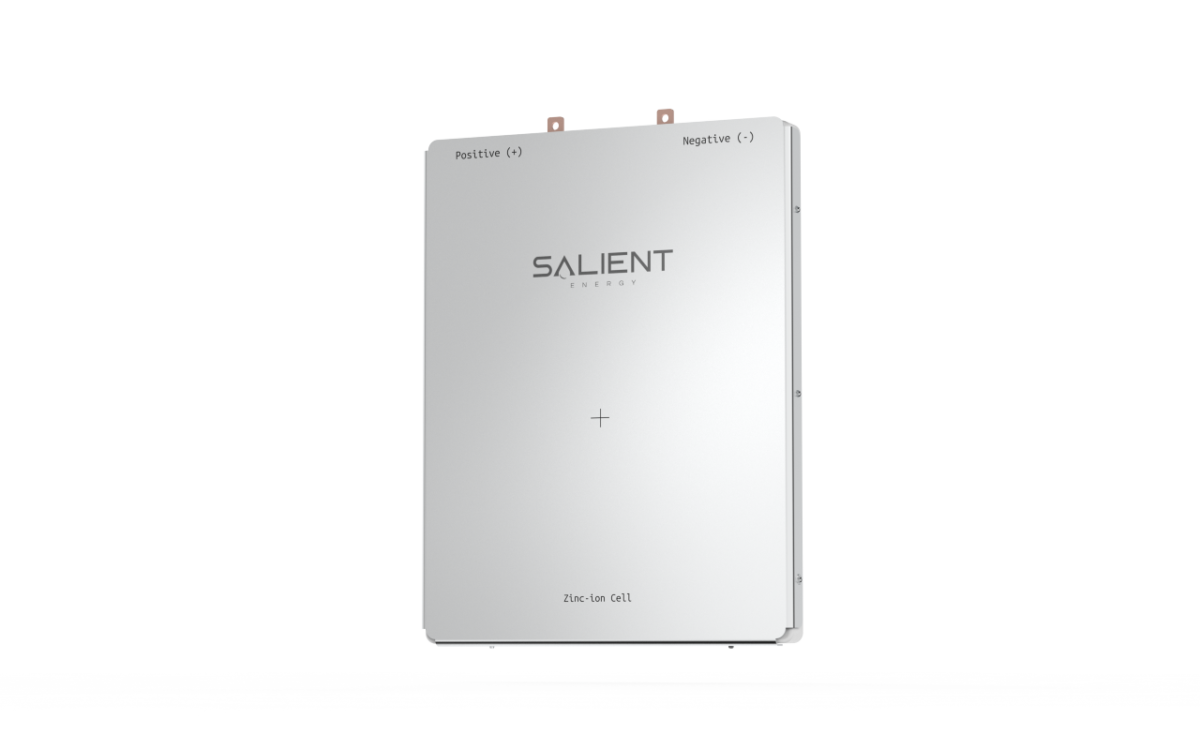From pv magazine Global
Canada-based Salient Energy has developed a zinc-ion battery for stationary energy storage in residential applications.
“The batteries are currently manufactured at our facility in Dartmouth, Nova Scotia, Canada, with a capacity of 100 batteries per month,” a spokesperson from the company told pv magazine. “Currently, we are in the process of ramping up production at this same facility to the pilot scale to support pilot projects in the residential space. We are also developing our first gigafactory plant design, which will be located in the USA or Canada.”
According to the manufacturer, its zinc-ion battery acts the same way as existing lithium-ion storage systems. “The battery can respond almost instantaneously to store or deliver clean power as needed. Since it has similar power capabilities to Li-ion, it is also well-suited for short-duration storage, which is a term for energy storage systems that can completely charge or discharge in just a few hours,” the spokesperson explained.
“Generally, zinc-ion energy storage systems function the same as lithium-ion, with the important differences between the two being in cost, safety, and supply chain abundance as opposed to performance. Additionally, its water-based chemistry eliminates the risk of fire, making it a safe alternative to existing systems.”
The battery measures 26cmx24cmx1.2cm and weighs in at 1.3 kg. Its rated capacity is 60 Ah and the nominal voltage is 1.3 V. The volumetric energy density is 100 Wh/L and the gravimetric energy density is 60 Wh/kg. The shelf life for two weeks is 100% and that for six months is 95%.
“Our initial focus is on the residential market, specifically starting with targeting homebuilders who are developing net-zero homes and communities,” the spokesperson continued. “We are starting with residential because of how important safety is to this market – we know that our zero fire-risk systems will greatly simplify installation and peace of mind to homeowners. We plan on expanding from residential into industrial energy storage and utility scale systems built for the grid.”
Zinc-ion has lagged behind other storage technologies due to challenges in controlling side reactions that both limit reversible charging at the anode and cause the cathode to fall apart. Zinc-ion, however, still has the potential for good energy storage performance out of cheap, abundant materials.
According to a recent study from the University of Bremen in Germany, the two main hurdles that must be overcome for zinc-ion batteries in future research are the increase of the specific energy of the full Zn-ion cell and the prevention of the parasitic hydrogen evolution reaction occurring during the Zn electrodeposition step.
This content is protected by copyright and may not be reused. If you want to cooperate with us and would like to reuse some of our content, please contact: editors@pv-magazine.com.









By submitting this form you agree to pv magazine using your data for the purposes of publishing your comment.
Your personal data will only be disclosed or otherwise transmitted to third parties for the purposes of spam filtering or if this is necessary for technical maintenance of the website. Any other transfer to third parties will not take place unless this is justified on the basis of applicable data protection regulations or if pv magazine is legally obliged to do so.
You may revoke this consent at any time with effect for the future, in which case your personal data will be deleted immediately. Otherwise, your data will be deleted if pv magazine has processed your request or the purpose of data storage is fulfilled.
Further information on data privacy can be found in our Data Protection Policy.